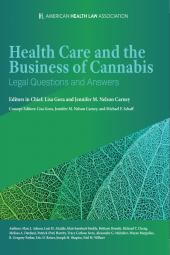
Reference librarians
are available to assist you
In Person: 1st Floor Reference Desk
Phone: 414-288-3837
Email: via web form
Hours: Library Service Hours
 Director's Technology Handbook : Tips and Strategies for Advising Corporate Directors
Director's Technology Handbook : Tips and Strategies for Advising Corporate Directors
 Money Code Space : Hidden Power in Bitcoin, Blockchain, and Decentralisation
by
Jack Parkin
Money Code Space : Hidden Power in Bitcoin, Blockchain, and Decentralisation
by
Jack Parkin
 The Gunner's Guide to Law School/by Marc A. Silverman
by
Marc A. Silverman
The Gunner's Guide to Law School/by Marc A. Silverman
by
Marc A. Silverman
 The Complete Bar Writer
by
Alexa Z. Chew; Katie Rose Guest Pryal
The Complete Bar Writer
by
Alexa Z. Chew; Katie Rose Guest Pryal
 Professional Responsibility in Litigation
by
Douglas R. Richmond; Brian S. Faughnan; Michael L. Matula; American Bar Association, Tort Trial and Insurance Practice Section Staff (Contribution by)
Professional Responsibility in Litigation
by
Douglas R. Richmond; Brian S. Faughnan; Michael L. Matula; American Bar Association, Tort Trial and Insurance Practice Section Staff (Contribution by)
 Restatement of the Law, Charitable Nonprofit Organizations : as Adopted and Promulgated by the American Law Institute at Washington, D.C., May 17, 2016; May 22, 2017; and May 20, 2019
Restatement of the Law, Charitable Nonprofit Organizations : as Adopted and Promulgated by the American Law Institute at Washington, D.C., May 17, 2016; May 22, 2017; and May 20, 2019
 Guide to Supply Chain Compliance Laws and Regulations
by
Travis Miller (ed.); Alan S. Gutterman (ed.)
Guide to Supply Chain Compliance Laws and Regulations
by
Travis Miller (ed.); Alan S. Gutterman (ed.)
 Employment Discrimination Law
by
Barbara Lindemann; Paul Grossman; C. Geoffrey Weirich; American Bar Association, Equal Employment Opportunity Committee Staff (Contribution by)
Employment Discrimination Law
by
Barbara Lindemann; Paul Grossman; C. Geoffrey Weirich; American Bar Association, Equal Employment Opportunity Committee Staff (Contribution by)
 Covid-19 : The Legal Challenges
by
Stephen Dycus (ed.); Eugene R. Fidell (ed.)
Covid-19 : The Legal Challenges
by
Stephen Dycus (ed.); Eugene R. Fidell (ed.)
 Health Care and the Business of Cannabis : Legal Questions and Answers
by
Lisa Gora (editor); Jennifer M. Nelson (editor)
Health Care and the Business of Cannabis : Legal Questions and Answers
by
Lisa Gora (editor); Jennifer M. Nelson (editor)
 Kurzban's Immigration Law Sourcebook : A Comprehensive Outline and Reference Tool
by
Ira J. Kurzban
Kurzban's Immigration Law Sourcebook : A Comprehensive Outline and Reference Tool
by
Ira J. Kurzban
 The Law of Class Action : Fifty-State Survey, 2021
by
Class Actions & Derivative Suits Committee
The Law of Class Action : Fifty-State Survey, 2021
by
Class Actions & Derivative Suits Committee
 The Marital Property Classification Handbook
by
Linda Roberson; Howard S. Erlanger
The Marital Property Classification Handbook
by
Linda Roberson; Howard S. Erlanger
 Advising the Evolving Family
by
Christopher S. Krimmer; Emily Dudak Leiter; Theresa L. Roetter
Advising the Evolving Family
by
Christopher S. Krimmer; Emily Dudak Leiter; Theresa L. Roetter
 Immigration Consequences of Wisconsin Criminal Offenses
Immigration Consequences of Wisconsin Criminal Offenses
 Wisconsin Crimes : Elements, Definitions, and Penalties
by
David E. Schultz
Wisconsin Crimes : Elements, Definitions, and Penalties
by
David E. Schultz
 The European Court of Human Rights
by
Angelika Nussberger
The European Court of Human Rights
by
Angelika Nussberger
 United Nations Peace Operations and Human Rights : Normativity and Compliance
by
Sylvia Maus
United Nations Peace Operations and Human Rights : Normativity and Compliance
by
Sylvia Maus